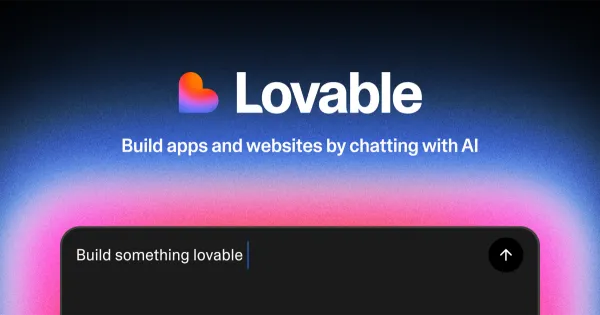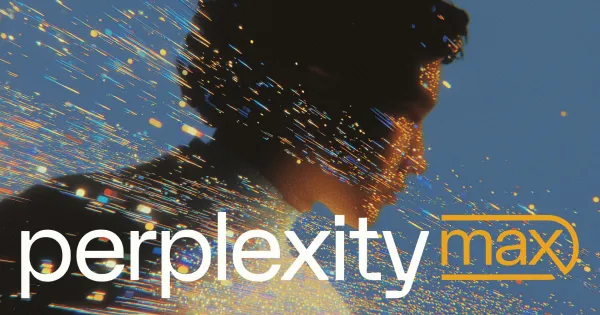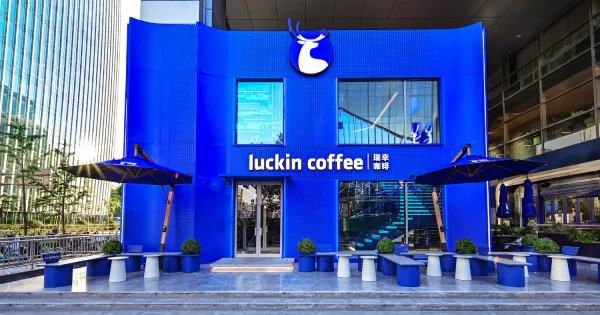Decoding "Zero to One": Peter Thiel's Success Blueprint

Peter Thiel is a prominent figure in the realms of technology and entrepreneurship. Born in Frankfurt, Germany, Thiel moved to the United States at a young age and grew up in California. His early interests included chess, which he excelled at, and philosophy, which he studied at Stanford University. Thiel later graduated from Stanford Law School, but his career path soon diverged from law into the burgeoning field of technology.
Thiel co-founded PayPal in 1998, a company that revolutionized online payments. Under his leadership as CEO, PayPal grew rapidly and went public in 2002, before being acquired by eBay later that year for $1.5 billion. This success not only established Thiel as a significant player in Silicon Valley but also provided the financial foundation for his future ventures. He went on to found Palantir Technologies, a data analytics company that plays a crucial role in various sectors, including national security and finance.
"Zero to One: Notes on Startups, or How to Build the Future," co-authored with Blake Masters, captures Thiel's insights from his lectures at Stanford University. Published in 2014, the book quickly became a must-read for entrepreneurs and innovators. Its central thesis is that progress can be divided into horizontal (copying things that work) and vertical (creating new things) progress, with the latter being the essence of true innovation.
The significance of "Zero to One" lies in its contrarian approach to common business wisdom. Thiel challenges readers to think beyond incremental improvements and focus on breakthrough innovations that change the world. The book has influenced countless entrepreneurs and has been praised for its deep insights into building successful startups and understanding the future of technology.
The Core Philosophy of "Zero to One"

The central premise of "Zero to One" is the concept of creating new things. Thiel argues that progress can be classified into two types: horizontal or extensive progress (going from 1 to n), which involves copying things that work, and vertical or intensive progress (going from 0 to 1), which involves doing something entirely new.
Horizontal progress refers to scaling existing ideas, technologies, and processes. This kind of progress is incremental and often involves competition among similar businesses. For example, when a new restaurant opens, it is essentially replicating a known business model in a new location. While this type of progress is necessary for economic growth, Thiel argues that it does not lead to groundbreaking innovation.
In contrast, vertical progress is about creating something unique that has never existed before. It’s about making leaps rather than steps. This kind of innovation is rare and requires a deep understanding of what is possible, combined with the vision and determination to make it happen. Thiel emphasizes that true innovation means going from 0 to 1, where a company creates a product or service that is entirely new and solves a problem in a way that no one else has.
Thiel provides several examples to illustrate this concept. One of the most notable is the story of PayPal. When Thiel and his co-founders started PayPal, their goal was not just to create another bank or another way to send money; they aimed to create a completely new system for online payments that would be faster, more secure, and more convenient than anything that existed before. This vision of creating something entirely new is what ultimately made PayPal a revolutionary product and a huge success.
Another example is the development of the iPhone by Apple. Before the iPhone, smartphones were clunky devices primarily used for email and basic internet browsing. Apple’s creation of a sleek, multi-functional device that integrated a phone, an iPod, and an internet communicator in one was a prime example of going from 0 to 1. The iPhone didn’t just improve on existing phones; it created a whole new category of device.
Thiel also contrasts "Zero to One" with "One to N" progress in the context of startups and innovation. While "One to N" progress focuses on scaling existing products and ideas, "Zero to One" progress involves pioneering new technologies and business models. Thiel argues that the most valuable companies are those that create new categories or significantly transform existing ones.
To achieve "Zero to One" innovation, Thiel advises entrepreneurs to focus on solving unique problems that others have overlooked or deemed too difficult. This requires asking contrarian questions and thinking critically about the future. One of the key questions Thiel poses to aspiring entrepreneurs is,
"What important truth do very few people agree with you on?"
This kind of contrarian thinking is essential for identifying opportunities for true innovation.
The core philosophy of "Zero to One" is about creating new things rather than merely improving existing ones. Thiel encourages entrepreneurs to aim for vertical progress, where they develop unique products and solutions that can transform industries and create lasting value. This approach requires bold thinking, a willingness to challenge conventional wisdom, and a deep commitment to solving complex problems in innovative ways.
Building a Monopoly: Thiel’s Perspective

One of the most provocative and thought-provoking arguments Thiel makes in "Zero to One" is his defense of monopolies. Contrary to the common view that monopolies are harmful to competition and innovation, Thiel argues that monopolies are actually beneficial for society and essential for the progress of successful companies.
Thiel's perspective is rooted in the belief that monopolies, or companies that dominate their markets, are able to generate significant profits and have the resources to innovate and improve. According to Thiel, monopolies are not inherently evil; rather, they are a natural outcome of companies creating valuable products and services that are far superior to what competitors can offer.
Thiel outlines several characteristics of successful monopolies:
- Proprietary Technology: This is the foundation of a monopoly’s power. A company that develops proprietary technology has a significant competitive advantage because its technology cannot be easily replicated. Thiel argues that this technology should be at least ten times better than the nearest substitute to create a lasting monopoly.
- Network Effects: These occur when the value of a product or service increases as more people use it. For example, social media platforms like Facebook benefit from network effects because the more users they have, the more valuable the platform becomes to each user. Network effects create a barrier to entry for competitors and strengthen the monopoly’s position in the market.
- Economies of Scale: Monopolies often benefit from economies of scale, which means that the cost of producing each additional unit of a product decreases as the company grows. This allows monopolies to lower their prices and outcompete smaller rivals.
- Branding: A strong brand can create a monopoly-like advantage by differentiating a company’s products from those of competitors. A powerful brand can command customer loyalty and justify premium pricing.
Thiel provides several examples from his own career to illustrate these principles. PayPal, for instance, leveraged proprietary technology to create a secure and efficient online payment system that was far superior to existing alternatives. This technology, combined with network effects from a growing user base, helped PayPal dominate the online payments market.
Palantir Technologies is another example of a company that embodies Thiel’s principles of monopoly building. Palantir’s proprietary software allows it to offer unparalleled data analysis capabilities to governments and corporations. This technology, which is difficult for competitors to replicate, has helped Palantir secure a dominant position in its market.
Thiel argues that building a monopoly should be the goal of every startup. He believes that monopolies are not only more profitable, but also more stable and capable of making long-term investments in innovation. By contrast, companies in highly competitive markets are often focused on short-term survival and incremental improvements, which can stifle innovation and growth.
To build a monopoly, Thiel advises entrepreneurs to focus on creating unique products that solve significant problems and to develop proprietary technologies that competitors cannot easily copy. He also emphasizes the importance of timing, team, and distribution in building a successful company.

For example, Google’s search engine achieved a monopoly by offering a product that was vastly superior to its competitors. Google’s proprietary PageRank algorithm provided more relevant search results, and the company was able to scale quickly by leveraging network effects and economies of scale. Google’s strong brand further solidified its dominant position in the market.
Thiel’s perspective on monopolies challenges conventional wisdom and offers a compelling argument for why they are essential for innovation and societal progress. By building companies that dominate their markets through unique products, proprietary technologies, and strategic advantages, entrepreneurs can create lasting value and drive significant advancements. Thiel’s insights provide a valuable roadmap for those looking to build successful and impactful startups.
The Importance of Definite Optimism

Peter Thiel's concept of definite optimism is a cornerstone of his philosophy in "Zero to One." This mindset contrasts sharply with other forms of optimism and pessimism, and understanding it is crucial for aspiring entrepreneurs aiming to create transformative innovations.
Definite Optimism Explained
Definite optimism is the belief that the future can be both better and known, and that we can shape it through planning and action. Definite optimists are confident that their efforts will lead to positive outcomes, and they actively work towards making their vision a reality. This mindset involves a clear and concrete plan to achieve specific goals.
In contrast, indefinite optimism is the belief that the future will be better, but without any specific plan or effort to shape it. Indefinite optimists might be hopeful, but they tend to rely on external factors or general progress to bring about positive change. This passive approach can lead to missed opportunities and a lack of significant innovation.

On the other hand, definite pessimism is the belief that the future can be known, but it will be worse, leading to a mindset focused on preventing negative outcomes. Indefinite pessimism is a more generalized form of despair, where the future is perceived as uncertain and likely unfavorable, leading to inaction and resignation.
Thiel argues that definite optimism is essential for creating groundbreaking innovations and successful startups. This mindset drives entrepreneurs to make bold moves, take calculated risks, and work tirelessly towards their vision.
Historical Context of Definite Optimism
Thiel points to the post-World War II era in the United States as a period characterized by definite optimism. During this time, there was a widespread belief that the future could be shaped through technological innovation and infrastructure development. This mindset led to significant advancements in various fields, including space exploration, transportation, and medicine.

The Apollo program, which aimed to land a man on the moon, is a prime example of definite optimism in action. The ambitious goal set by President John F. Kennedy in 1961 was achieved in 1969 through meticulous planning, innovation, and determination. This achievement not only demonstrated the power of definite optimism but also inspired a generation to pursue ambitious goals.
Definite Optimism in Modern Times
In our fast-paced and unpredictable world, definite optimism can be a powerful tool for entrepreneurs and innovators. Thiel encourages individuals to embrace this mindset by setting clear goals and developing detailed plans to achieve them. This approach involves:
- Vision: Having a clear and compelling vision of what you want to achieve. This vision should be ambitious yet realistic, inspiring you and others to take action.
- Planning: Developing a concrete plan with specific steps and milestones to reach your goal. This plan should consider potential challenges and outline strategies to overcome them.
- Execution: Taking consistent and focused action towards your goals. This involves staying committed, adapting to changing circumstances, and learning from failures.
Thiel's own career exemplifies definite optimism. His decision to invest in Facebook in its early days was based on a clear vision of the potential of social networking. He saw the opportunity for Facebook to become a dominant platform and worked towards making that vision a reality. Similarly, his founding of Palantir Technologies was driven by a belief in the power of data analytics to solve complex problems.
Practical Applications of Definite Optimism
For aspiring entrepreneurs, adopting a definite optimistic mindset can lead to significant advantages:
- Clear Direction: Definite optimism provides a clear direction and purpose, helping you stay focused on your goals and avoid distractions.
- Increased Motivation: A concrete vision and plan can boost motivation and drive, encouraging you to persevere through challenges and setbacks.
- Better Decision-Making: With a clear plan, you can make more informed and strategic decisions, aligning your actions with your long-term goals.
- Higher Innovation: By aiming for specific and ambitious outcomes, you are more likely to pursue innovative solutions and breakthrough ideas.
Definite optimism is a powerful mindset that can drive significant innovation and success. By believing in and actively working towards a better future, entrepreneurs can overcome obstacles, seize opportunities, and create lasting impact. Thiel's emphasis on definite optimism provides valuable insights for those looking to build successful startups and make meaningful contributions to society.
Secrets of Successful Startups

Peter Thiel's "Zero to One" offers a wealth of insights into the attributes and strategies that define successful startups. According to Thiel, building a successful startup involves more than just a great idea; it requires a unique combination of vision, innovation, and execution. Here are some of the key secrets to startup success outlined in the book:
Unique Value Proposition
One of the fundamental principles Thiel emphasizes is the importance of having a unique value proposition. A successful startup should offer something that is distinctly different and significantly better than what is currently available in the market. This unique value proposition sets the company apart from competitors and provides a compelling reason for customers to choose their product or service.
To develop a unique value proposition, entrepreneurs should focus on solving significant problems that others have overlooked or deemed too difficult. This involves understanding customer pain points and creating solutions that address those needs in innovative ways. Thiel encourages startups to think critically about what makes their offering unique and how it can deliver unparalleled value to customers.
Scalability
Scalability is another crucial attribute of successful startups. A scalable business model allows a company to grow rapidly without a proportional increase in costs. This means that as the company expands, it can maintain or even improve its profit margins.
Thiel advises entrepreneurs to design their business models with scalability in mind. This involves leveraging technology and automation to streamline operations, reduce costs, and enhance efficiency. Scalable businesses can quickly adapt to increasing demand and capitalize on growth opportunities, making them more attractive to investors and more likely to achieve long-term success.
Team and Culture
The team and culture of a startup play a pivotal role in its success. Thiel emphasizes the importance of building a strong, cohesive team with complementary skills and a shared vision. The right team can drive innovation, overcome challenges, and execute the company's strategy effectively.
When assembling a team, Thiel advises entrepreneurs to look for individuals who are not only talented but also aligned with the company's mission and values. A strong culture of collaboration, transparency, and mutual respect can foster creativity and drive the company towards its goals.
Thiel also highlights the importance of leadership in shaping the company’s culture. Effective leaders inspire and motivate their teams, set clear expectations, and create an environment where innovation and risk-taking are encouraged. By cultivating a strong team and culture, startups can build a solid foundation for success.
Timing
Timing is a critical factor in the success of a startup. Entering the market at the right time can make a significant difference in a company's trajectory. Thiel discusses the importance of understanding market readiness and leveraging trends to maximize opportunities.
Successful startups often identify emerging trends and position themselves to capitalize on them before they become mainstream. This requires a keen awareness of market dynamics and the ability to anticipate future needs. Thiel encourages entrepreneurs to stay informed about industry developments and be proactive in seizing opportunities as they arise.
Distribution
Distribution, or the ability to effectively reach and acquire customers, is another key factor in startup success. Thiel emphasizes that having a great product is not enough; startups must also have a clear strategy for getting their product into the hands of customers.
This involves understanding the most effective channels for reaching the target audience and developing a comprehensive marketing and sales strategy. Thiel advises startups to focus on building strong relationships with customers and leveraging word-of-mouth and network effects to drive growth.
For example, PayPal’s strategy of partnering with eBay sellers helped the company rapidly expand its user base and establish itself as a trusted online payment platform. By focusing on distribution and customer acquisition, startups can accelerate their growth and achieve market dominance.
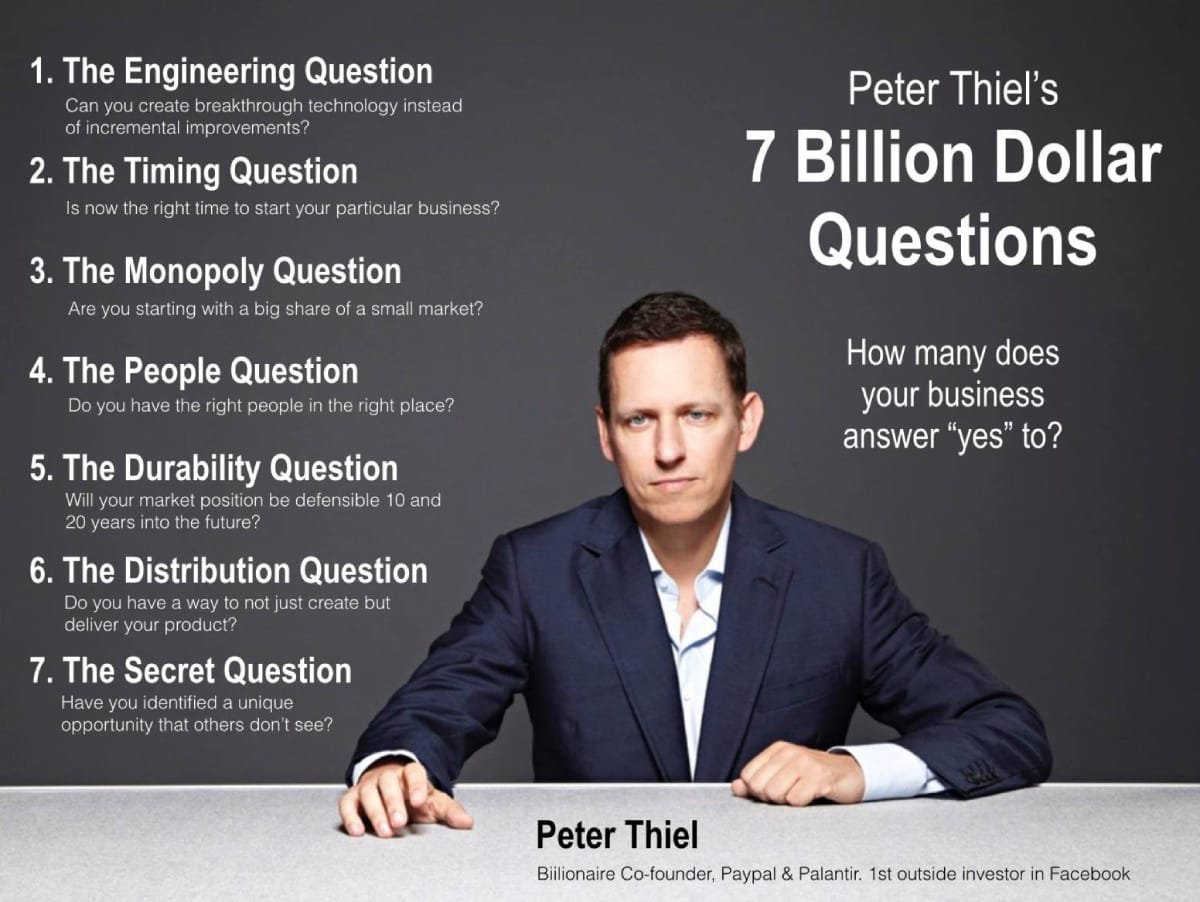
Case Studies and Practical Advice
Thiel provides numerous case studies and practical advice throughout "Zero to One" to illustrate these principles. One notable example is Facebook, where Thiel was an early investor. Facebook’s unique value proposition as a social networking platform, combined with its scalable business model, strong team, and effective distribution strategy, helped it become one of the most successful startups in history.
Another example is SpaceX, founded by Elon Musk. SpaceX’s ambitious vision of reducing the cost of space travel and making human life multiplanetary required innovative thinking and a bold approach. By focusing on scalability, building a talented team, and executing a clear strategy, SpaceX has achieved remarkable success in the aerospace industry.
Thiel’s practical advice for entrepreneurs includes:
- Focus on niche markets: Start by dominating a small market before expanding. This allows startups to build a strong foundation and avoid direct competition with larger, established companies.
- Think long-term: Successful startups have a long-term vision and are committed to achieving it. This involves making strategic decisions that may not yield immediate results but will create lasting value.
- Embrace failure: Failure is an inevitable part of the entrepreneurial journey. Thiel encourages entrepreneurs to learn from their mistakes, iterate on their ideas, and persist in the face of challenges.
The secrets of successful startups, according to Peter Thiel, involve a combination of unique value propositions, scalability, strong teams and culture, timing, and effective distribution. By understanding and applying these principles, entrepreneurs can increase their chances of building successful and impactful startups. Thiel’s insights provide a valuable roadmap for navigating the complexities of entrepreneurship and achieving long-term success.
The Power of Boldness and Risk-taking

Boldness and risk-taking are central themes in "Zero to One," and Peter Thiel emphasizes their importance in achieving extraordinary success. Thiel believes that conventional thinking and risk aversion lead to mediocrity, while bold, unconventional approaches can lead to groundbreaking innovations.
The Role of Risk in Innovation
Thiel argues that taking risks is essential for creating something truly innovative. Innovation, by its very nature, involves venturing into the unknown and exploring uncharted territory. This requires a willingness to take risks and embrace the possibility of failure.
Thiel’s own career is a testament to the power of boldness and risk-taking. His decision to invest in Facebook at a time when social networks were not yet mainstream was a bold move that paid off tremendously. Similarly, his involvement in Palantir, despite the controversial nature of big data and privacy concerns, highlights his willingness to take risks for the potential of high rewards.
Boldness involves questioning established norms and thinking differently about existing problems. Thiel encourages entrepreneurs to challenge the status quo and pursue visionary ideas that others might dismiss as too risky or unconventional.
Examples of Bold Decisions
Throughout "Zero to One," Thiel provides examples of bold decisions that have led to significant success. One notable example is the founding of SpaceX by Elon Musk. At a time when the idea of private space travel seemed far-fetched, Musk boldly pursued his vision of reducing the cost of space exploration and making human life multiplanetary. His willingness to take risks and challenge conventional thinking has resulted in groundbreaking advancements in the aerospace industry.
Another example is Tesla, also founded by Elon Musk. The decision to create electric cars at a time when the automotive industry was dominated by gasoline-powered vehicles was a bold move. Tesla’s commitment to innovation, despite the significant risks and challenges, has revolutionized the automotive industry and accelerated the transition to sustainable energy.
Thiel also highlights his own experience with PayPal. The company’s decision to focus on creating a secure and efficient online payment system was a bold move in the early days of the internet. PayPal’s innovative approach to online payments, combined with its willingness to take risks, ultimately led to its success and dominance in the market.
The Importance of Calculated Risks
While boldness and risk-taking are important, Thiel emphasizes the need for calculated risks. This involves carefully assessing the potential rewards and consequences of a decision and making informed choices based on that analysis.
Thiel advises entrepreneurs to conduct thorough research and gather as much information as possible before making bold decisions. This includes understanding market dynamics, customer needs, and potential challenges. By taking calculated risks, entrepreneurs can increase their chances of success and minimize potential downsides.
Encouraging a Culture of Boldness
Thiel believes that fostering a culture of boldness within a startup is crucial for driving innovation. This involves creating an environment where employees feel empowered to take risks and experiment with new ideas. Leaders should encourage their teams to think creatively, challenge assumptions, and pursue ambitious goals.
A culture of boldness also involves celebrating failures as learning opportunities. Thiel argues that failure is an inevitable part of the innovation process, and startups should embrace it as a chance to learn and improve. By encouraging a mindset that views failure as a stepping stone to success, startups can cultivate resilience and drive continuous improvement.
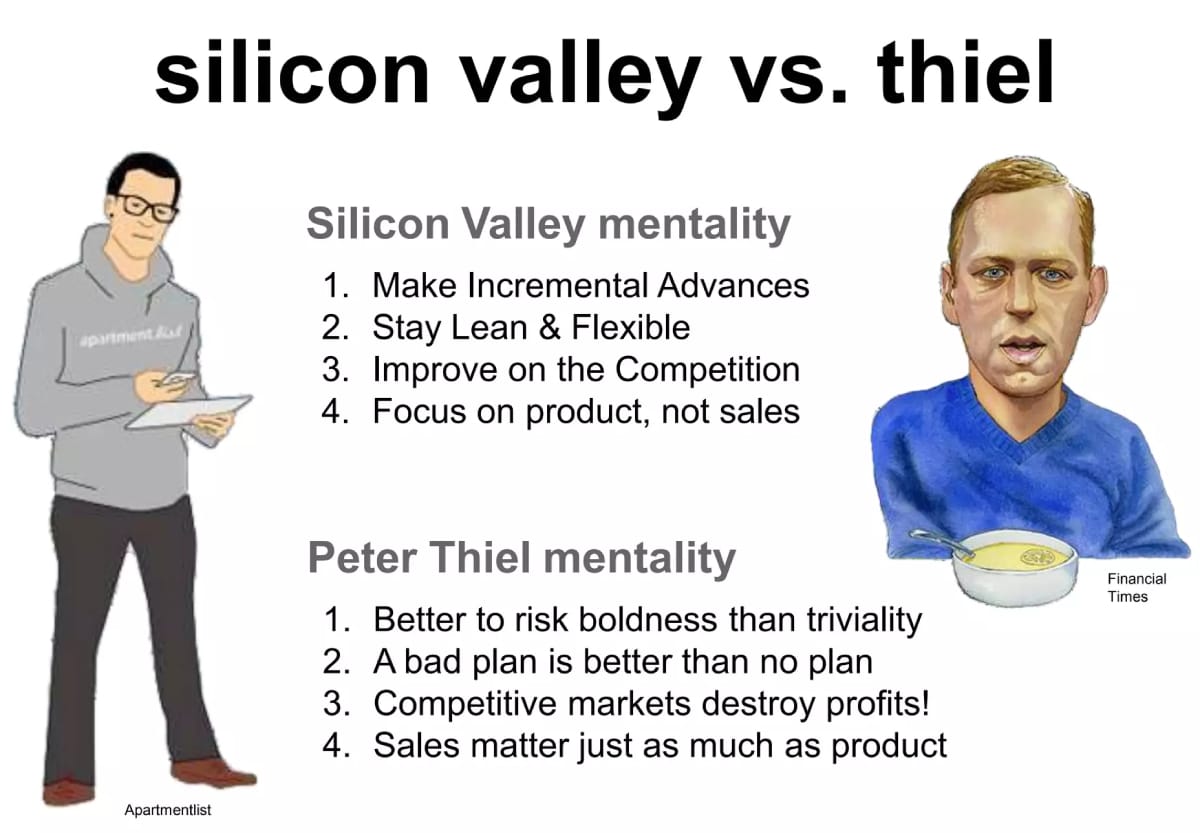
Practical Strategies for Bold Decision-Making
Thiel provides several practical strategies for making bold decisions and taking calculated risks:
- Think Big: Set ambitious goals that push the boundaries of what is possible. Bold thinking can lead to breakthrough innovations and create significant value.
- Start Small: While thinking big, start small by testing ideas on a smaller scale before scaling up. This allows for learning and iteration without committing significant resources upfront.
- Gather Data: Make informed decisions by gathering relevant data and insights. This includes understanding market trends, customer feedback, and potential risks.
- Learn from Failures: Embrace failures as learning opportunities and use them to refine strategies and approaches.
- Stay Committed: Bold decisions often involve long-term commitments. Stay focused and persistent in pursuing ambitious goals, even in the face of challenges and setbacks.
The power of boldness and risk-taking is a central theme in "Zero to One." Thiel’s emphasis on unconventional thinking, challenging the status quo, and taking calculated risks provides valuable insights for entrepreneurs looking to achieve extraordinary success. By fostering a culture of boldness and encouraging innovative thinking, startups can drive significant advancements and create lasting impact.
The Future and Technological Progress

Peter Thiel’s vision for the future is deeply rooted in technological progress. In "Zero to One," he emphasizes the critical role that technology plays in shaping a prosperous future and solving humanity's greatest challenges. Thiel argues that continuous innovation and the development of new technologies are essential for driving economic growth and improving quality of life.
Thiel’s Views on Technological Progress
Thiel believes that technological progress is not automatic or guaranteed; it requires deliberate effort and visionary thinking. He distinguishes between two types of progress: globalization and technology. Globalization involves the replication of existing products and services across the world, while technological progress involves creating new and better ways of doing things.

According to Thiel, the 21st century should focus more on technological progress rather than mere globalization. He argues that many of the significant problems facing humanity, such as climate change, energy scarcity, and health issues, can only be addressed through innovative technologies. Thiel calls for a renewed focus on developing breakthrough technologies that can lead to significant advancements and drive societal progress.
Areas with Potential for Technological Innovation
In "Zero to One," Thiel outlines several areas that he believes have significant potential for future innovation:
- Artificial Intelligence (AI): Thiel sees AI as a transformative technology that can revolutionize various industries. AI has the potential to improve efficiency, enhance decision-making, and create new opportunities in fields such as healthcare, finance, and transportation. Thiel encourages entrepreneurs to explore AI applications that can address complex problems and create substantial value.
- Energy: Innovations in energy production and storage are crucial for creating sustainable and efficient energy solutions. Thiel highlights the importance of developing new energy technologies that can reduce reliance on fossil fuels and mitigate the impact of climate change. This includes advancements in solar power, battery storage, and nuclear energy.
- Biotechnology: Thiel believes that biotechnology holds the key to improving health and extending human life. He emphasizes the potential for breakthroughs in areas such as gene therapy, personalized medicine, and regenerative medicine. These innovations can lead to more effective treatments for diseases and enhance overall health and longevity.
- Space Exploration: Thiel sees space exploration as an exciting frontier with vast potential for innovation. He advocates for the development of technologies that can make space travel more accessible and affordable. This includes advancements in rocket technology, space habitats, and resource utilization. Thiel believes that space exploration can open new opportunities for scientific discovery and economic growth.
Predictions and Insights from "Zero to One"
Thiel offers several predictions and insights about the future of technology and its impact on society. He argues that the companies that will thrive in the future are those that focus on creating new technologies and solving significant problems. These companies will not only drive economic growth but also contribute to the betterment of society.
Thiel also emphasizes the importance of being proactive in shaping the future. He encourages entrepreneurs and innovators to take bold steps and invest in long-term projects that can lead to transformative change. This involves thinking critically about the future, identifying emerging trends, and being willing to take risks to achieve ambitious goals.
Staying Ahead in a Rapidly Changing World
Staying ahead requires a combination of vision, innovation, and adaptability. Thiel offers several strategies for navigating the complexities of technological progress and staying ahead of the curve:
- Continuous Learning: Stay informed about the latest developments in technology and industry trends. This involves reading, attending conferences, and engaging with experts in the field.
- Long-Term Vision: Focus on long-term goals and invest in projects that have the potential to create significant value. This requires a commitment to innovation and a willingness to take calculated risks.
- Collaboration: Work with talented individuals and organizations to leverage collective expertise and resources. Collaboration can lead to new ideas, faster development, and more effective problem-solving.
- Adaptability: Be prepared to adapt to changing circumstances and pivot when necessary. This involves being flexible and open to new opportunities and challenges.
- Bold Thinking: Challenge conventional wisdom and think creatively about solving problems. Bold thinking can lead to breakthrough innovations and create lasting impact.
Thiel’s views on the future and technological progress emphasize the importance of deliberate effort and visionary thinking in driving innovation. By focusing on key areas such as AI, energy, biotechnology, and space exploration, entrepreneurs can create technologies that address significant challenges and contribute to a prosperous future. Thiel’s insights provide valuable guidance for those looking to stay ahead in a rapidly changing world and make meaningful contributions to society.
Criticisms and Controversies

Peter Thiel’s philosophy and actions have not been without criticism and controversy. While his ideas have garnered significant praise and influence, they have also sparked debate and scrutiny from various quarters. It is essential to explore these criticisms to gain a balanced perspective on Thiel's impact and legacy.
Criticisms of Thiel’s Philosophy
One of the primary criticisms of Thiel’s philosophy is his advocacy for monopolies. Critics argue that monopolies can stifle competition, reduce consumer choice, and lead to higher prices. They contend that monopolistic practices can hinder innovation by creating barriers to entry for new players and concentrating market power in the hands of a few dominant companies.
Thiel's defense of monopolies, as outlined in "Zero to One," challenges conventional economic thinking. While he argues that monopolies drive innovation and societal progress, critics fear that they can lead to an imbalance of power and potential abuse of market dominance. This debate raises important questions about the balance between fostering innovation and ensuring fair competition.
Ethical Concerns and Controversial Investments
Thiel’s investments, particularly in companies like Palantir Technologies, have also been a source of controversy. Palantir, a data analytics firm, has been criticized for its work with government agencies, including surveillance and intelligence operations. Critics argue that Palantir’s technology raises significant privacy and ethical concerns, particularly regarding the potential for misuse of data and infringement on individual rights.
Thiel’s political views and actions have further fueled controversy. As a vocal libertarian and supporter of conservative causes, Thiel has attracted both praise and criticism for his political stance. His support for controversial figures and policies has sparked debates about the intersection of technology, politics, and ethics.
Balanced View on Critiques
While it is essential to acknowledge these criticisms, it is also important to consider Thiel’s contributions to technology and entrepreneurship. Thiel’s investments in companies like PayPal, Facebook, and SpaceX have driven significant innovation and created substantial value. His philosophy of bold thinking, risk-taking, and focusing on breakthrough innovations has inspired countless entrepreneurs.
Thiel’s emphasis on creating new things and fostering technological progress provides a counterpoint to the criticisms. By challenging conventional wisdom and advocating for a contrarian approach, Thiel encourages entrepreneurs to think differently and pursue ambitious goals.
It is also worth noting that the debate around monopolies and innovation is complex and multifaceted. While monopolies can pose challenges, they can also drive significant advancements and create new markets. The key lies in finding a balance that fosters innovation while ensuring fair competition and ethical practices.
Final Thoughts
Peter Thiel’s "Zero to One" provides a unique and thought-provoking perspective on innovation and entrepreneurship. By focusing on creating new things, building monopolies, and adopting a mindset of definite optimism and boldness, entrepreneurs can navigate the complexities of building successful startups and contribute to technological progress.
Thiel’s success blueprint is not without its controversies and criticisms, but it offers valuable insights that can inspire and guide aspiring entrepreneurs. By understanding and applying these principles, individuals can increase their chances of building impactful and successful ventures.
In conclusion, "Zero to One" serves as a powerful guide for those looking to make a meaningful impact in the world of technology and entrepreneurship. Thiel’s emphasis on innovation, bold thinking, and long-term vision provides a roadmap for creating lasting value and driving societal progress. By decoding Thiel’s success blueprint, entrepreneurs can embark on a journey of innovation and achieve extraordinary success.
Key Takeaways
| Section | Key Takeaways |
|---|---|
| Introduction to Peter Thiel and "Zero to One" | - Peter Thiel is a major entrepreneur and investor. - "Zero to One" focuses on creating new things (innovation) rather than improving existing ones. - The book is highly influential in business and startups. |
| The Core Philosophy of "Zero to One" | - True innovation involves creating new things (0 to 1) rather than copying (1 to n). - Solve unique problems and think contrarily. - Innovations can transform industries. |
| Building a Monopoly: Thiel’s Perspective | - Monopolies drive innovation and progress. - Successful monopolies have unique technology, network effects, economies of scale, and strong branding. - Aim to dominate your market. |
| The Importance of Definite Optimism | - Definite optimism means believing in and planning for a better future. - This mindset drives proactive and bold actions. - Historical examples like the Apollo program show definite optimism in action. |
| Secrets of Successful Startups | - Have a unique value proposition, scalability, strong team, and good timing. - Build a strong team with shared vision. - Effective distribution and customer acquisition are crucial. |
| The Power of Boldness and Risk-taking | - Boldness and risk-taking lead to extraordinary success. - Challenge norms and learn from failure. - Take calculated risks based on thorough research. |
| The Future and Technological Progress | - Technology is key to solving big challenges. - Focus on AI, energy, biotechnology, and space exploration. - Be proactive, adaptable, and visionary. |
| Criticisms and Controversies | - Thiel’s views on monopolies and investments are controversial. - Ethical concerns exist around some ventures like Palantir. - Despite criticisms, Thiel's impact on innovation is significant. |
| Conclusion: Lessons from "Zero to One" | - Focus on innovation, boldness, and long-term vision. - Solve unique problems and develop unique technologies. - Be optimistic, take risks, and aim high. |
Top Quotes from Zero to One
- “The most contrarian thing of all is not to oppose the crowd but to think for yourself.”
- “Every moment in business happens only once.”
- “Brilliant thinking is rare, but courage is in even shorter supply than genius.”
- “Creating value isn’t enough—you also need to capture some of the value you create.”
- “Monopoly is the condition of every successful business.”
- “If you can’t invent a new future, you don’t have a startup.”
- “All failed companies are the same: they failed to escape competition.”
- “The best startups might be considered slightly less extreme kinds of cults.”
- “You are not a lottery ticket.”
- “A startup is the largest group of people you can convince of a plan to build a different future.”
- “Long-term planning is often undervalued by our indefinite short-term world.”
- “A bad plan is better than no plan.”
- “As a founder, your first job is to get the first things right, because you cannot build a great company on a flawed foundation.”
- “You should focus relentlessly on something you’re good at doing, but before that, you must think hard about whether it will be valuable in the future.”
- “The best entrepreneurs know this: every great business is built around a secret that’s hidden from the outside.”
- “To build the next generation of companies, we must abandon the dogmas created after the collapse.”
- “The paradox of teaching entrepreneurship is that such a formula necessarily cannot exist; because every innovation is new and unique, no authority can prescribe in concrete terms how to be innovative.”
- “In a world that’s changing so quickly, the biggest risk you can take is not taking any risks.”
- “The best problems to work on are often the ones nobody else even tries to solve.”
- “Successful people find value in unexpected places, and they do this by thinking about business from first principles instead of formulas.”


